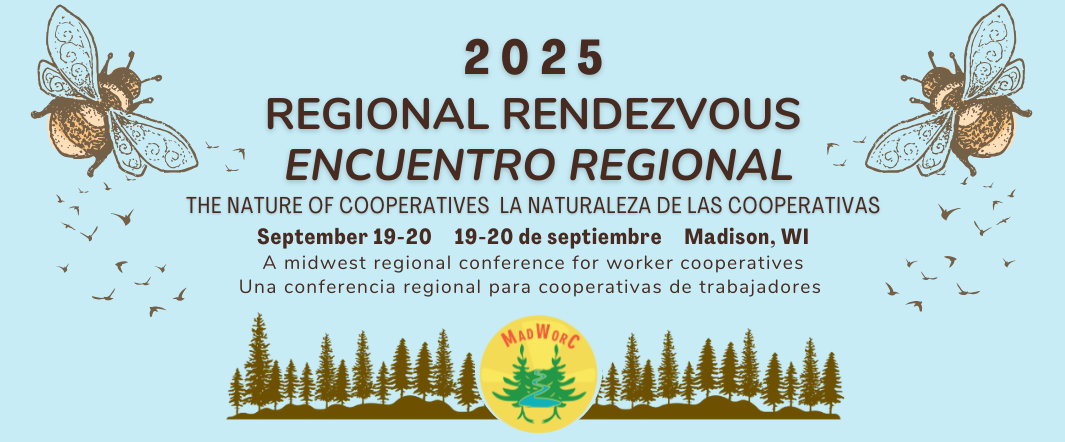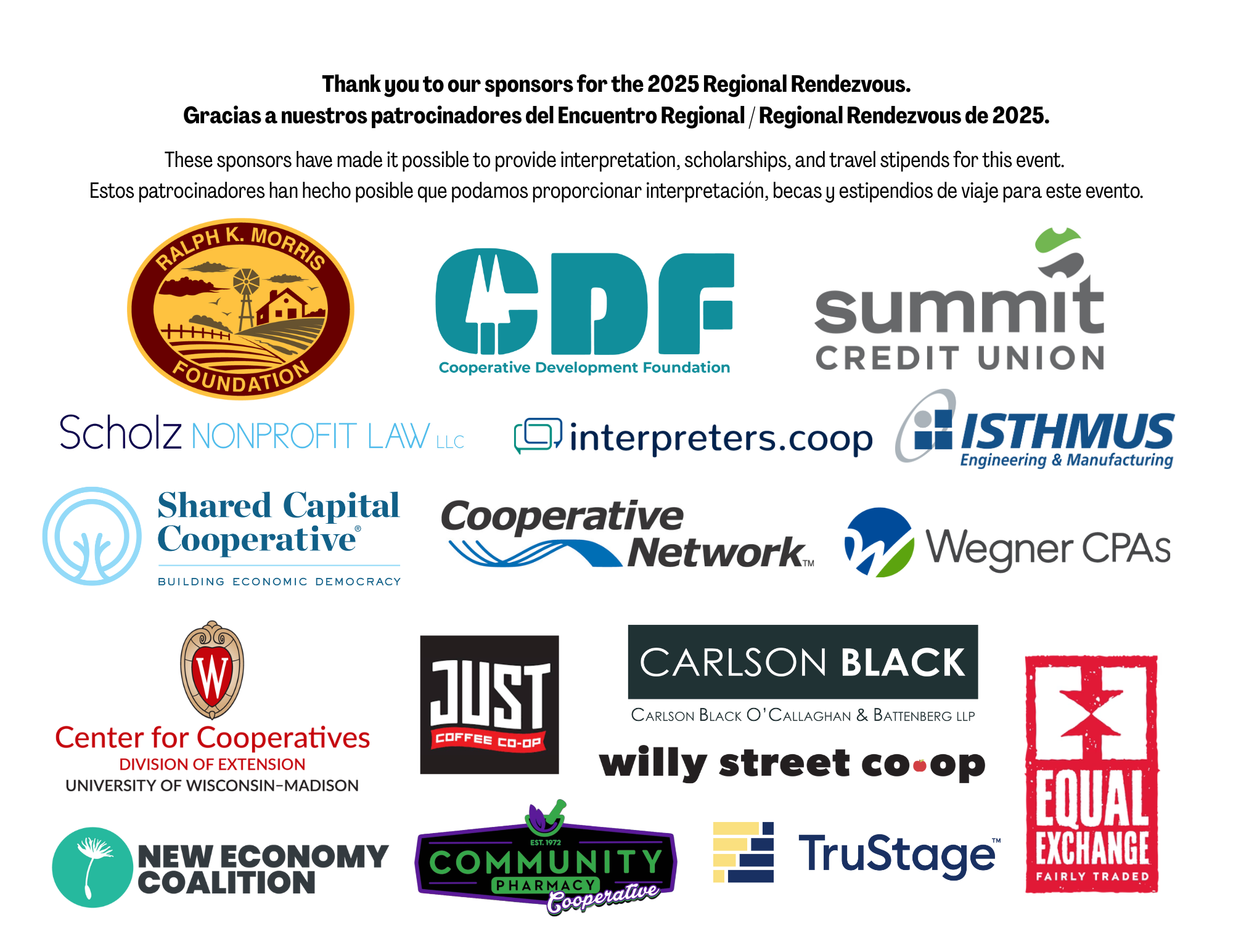
Friday, September 19th
James Reeb UUC
9:30am - 10:30am
Welcome/Coffee Hour

10:30am - 12:00pm
Regional Co-op Climate Justice Planning
Esther West | Shared Capital
*Offered with Spanish Interpretation*
10:30am - 12:00pm
Ledgers for the People: Co-op Bookkeeping Without QuickBooks
Andy Browne | Nonprofit CPA

12:00pm - 1:00pm
Lunch

1:00pm - 2:30pm
Solidarity Economy Values
*Offered with Spanish Interpretation*
Xochitl Espinosa | Co-op Ed Center
Heather Davis | Co-op Ed Center
1:00pm - 2:30pm
Evicting our digital landlords: How we liberate our tech and build sustainable, democratically-run software
Andy Bowling | comp.coop

2:45pm - 4:15pm
Cooperative Veterinary Care - a conversion
Ole Olson | Isthmus Engineering
John Dally | Cooperative Veterinary Care
Kristin Forde | UW Center for Cooperatives
*Offered with Spanish Interpretation*
2:45pm - 4:15pm
Project 2025: Another Way is Possible
Colleen Butler | nINA Collective
ananda mirilli | nINA Collective

Full Group Closing for Day One

Saturday, September 20th
Badger Rock Community Center
9:30am - 10:30am
Welcome/Coffee Hour

10:30am - 12:00pm
Committees That Work
Ole Olson | Isthmus Enginering
*Offered with Spanish Interpretation*
10:30am - 12:00pm
Regenerative Practices for Thriving Cooperative Businesses
Colleen Skemp | CoLab Cooperative

12:00pm - 1:00pm
Lunch

1:00pm - 2:30pm
Dispatch from the Twin Cities Cooperative Scene
Diana Siegel-Garcia | Nexus Community Partners
Christina Nicholson | Nexus Community Partners
*Offered with Spanish Interpretation*
1:00pm - 2:30pm
Developing intentionally Sustainable Communities (Restorative Pratices)
Sue Hessel | Union Cab Cooperative
Jennifer Warnick | Center for Nonviolent Communication

3:00pm - 4:30pm
Growing Older & Wiser as a Cooperative: strategies for longevity and worker-owner satisfaction
Maureen Darras | US Federation of Worker Cooperatives
*Offered with Spanish Interpretation*
3:00pm - 4:30pm
Costa Rica Coop Immersion Tours
Ole Olson | Isthmus Engineering
Kyle Meisse | Isthmus Engineering
Kristin Forde | UW Center for Cooperatives

Regional Rendezvous After Party!
Isthmus Engineering is hosting an after party to finish out the conference on Saturday evening. Session attendees can get tours of Isthmus's facility, free food and drink - including a soft serve machine! - and network with workers from Madison area cooperatives.

Links:
